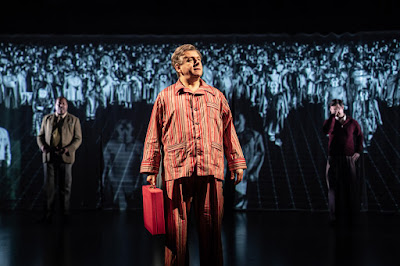The Unseen Consequences: Closure of Rail Ticket Offices and the Cascade of Challenges
 |
| Ticket Office Closed |
The recent announcement to close rail ticket offices harbours the potential to fundamentally reshape the train travel experience. At first glance, it appears to be a step towards digital efficiency, but delving deeper reveals its grave implications, particularly for disabled travellers and the general public.
For me and other disabled travellers, ticket offices have always been more than just a ticket point. They are a sanctuary for us seeking assistance with navigation, boarding, and ticket purchases. With the closure of these offices, seeking help becomes more daunting, especially in emergencies. And the lack of human presence could make stations feel less secure, leaving passengers, particularly disabled and older people, feeling vulnerable.
The proposed closures also bring into focus the technological challenges that lie ahead. While seemingly efficient, advanced ticket vending machines and digital platforms may be user-friendly for some, they spell trouble for those with visual impairments or cognitive difficulties. These systems might not cover all ticket options and discounts for disabled travellers. Furthermore, not everyone has Internet access or electronic banking. The move to a digital-first system may exclude such individuals from the rail network altogether, thereby widening the existing 'digital divide'.
The impact on the workforce and local economy is another essential factor to consider. The closure of ticket offices could lead to a reduction in staff numbers, meaning less help available for disabled travellers. The potential job losses might have a ripple effect on local economies, particularly in smaller towns.
Furthermore, rail ticket offices in rural areas and smaller towns often double up as community hubs, contributing to the local social fabric. Their disappearance could leave a void in these communities.
Finally, there's the loss of the human touch, an often underestimated but crucial element of the
travel experience. The friendly faces at the ticket office offer personalised advice on our journeys, something that an automated system can never replace. For tourists, particularly those not fluent in the local language, these changes could make their travel experience considerably more stressful.
In conclusion, the decision to close ticket offices could result in a myriad of challenges, particularly for disabled travellers. The difficulties in securing help, navigating digital systems, and ensuring personal safety are just the tip of the iceberg. Additionally, the ripple effects on the workforce, local communities, economy, and the overall travel experience are significant. As such, this plan requires more thoughtful consideration to ensure that the march towards progress does not trample upon the needs and rights of disabled people and the broader travelling public.




Comments
Post a Comment